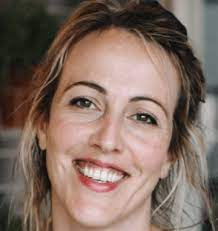The Cost of Reproductive Effort for Female Ageing in Mandrills and Humans

Alexandra Alvergne
University of Montpellier, France
Link to seminar: https://umontpellier-fr.zoom.us/webinar/register/WN_5HVJlMOdTbKtukbfUbaLnA
Summary
Ageing, the accumulation of molecular and cellular damage over time, is a major driver of chronic diseases, the leading causes of death and disability worldwide. However, the determinants of variation in how fast individuals age are poorly understood, especially in the field of women’s health, which traditionally focuses on reproductive health. Here, I aim to test the hypothesis that variation in the speed of ageing is due to differential investment in reproductive effort over the life-course. I will present analyses of longitudinal data from two different long-lived species: female Mandrills and women living in the UK (the UK Biobank). In each case, samples are taken from populations living in environments where the availability of energetic resources is non-seasonal and relatively abundant. In Mandrills, immuno-senescence, measured by age-adjusted co-infection with gastrointestinal parasites, is neither associated with time spent in pregnancy and lactation, nor with rank. By contrast, in a western human population, physiological markers of immuno-senescence (e.g., level of C-Reactive Protein, length of telomeres) do increase with the number of offspring, especially in poorer settings. Yet, if reproduction negatively associates with biological ageing in humans, its impact on mortality is complex. It follows a U shape and is mediated by both socio-economic and relational resources. I will discuss those results within the context of studies on the evolution of senescence.
Publications:
- Alvergne A, Högqvist Tabor V. 2018 Is Female Health Cyclical? Evolutionary Perspectives on Menstruation. Trends Ecol. Evol. 33, 399–414.
- Fraser A, Johnman C, Whitley E, Alvergne A. 2020 The evolutionary ecology of age at natural menopause: implications for public health. Evol. Hum. Sci.
- Thomas F, Giraudeau M, Renaud F, Ujvari B, Roche B, Pujol P, Raymond M, Lemaitre JF, Alvergne A. 2019 Can postfertile life stages evolve as an anticancer mechanism? PLoS Biol.
On covid and cycles (but I won't talk about it)
- Alvergne A, Kountourides G, Argentieri MA, Agyen L, Rogers N, Knight D, Sharp GC, Maybin JA, Olszewska Z. 2021 COVID-19 vaccination and menstrual cycle changes: A United Kingdom (UK) retrospective case-control study. medRxiv 11.23.2126.
- Sharp GC et al. 2021 The COVID-19 pandemic and the menstrual cycle: research gaps and opportunities. Int. J. Epidemiol.
Contact: alison.duncan@umontpellier.fr
Contact du Comité SEEM: seem@services.cnrs.fr. Contact du Labex CEMEB: cemeb-gestion@umontpellier.fr


